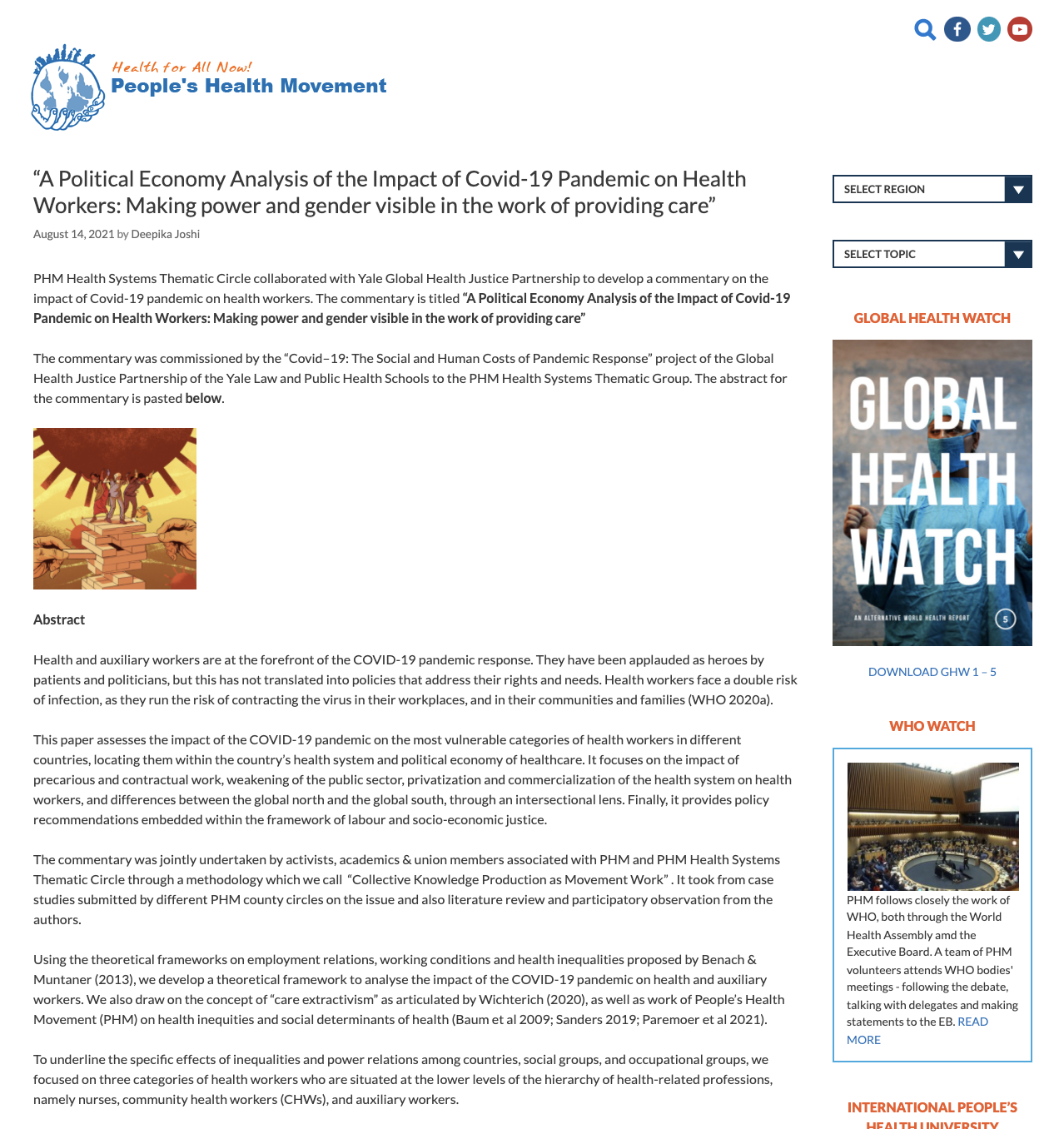PHM Health Systems Thematic Circle collaborated with Yale Global Health Justice Partnership to develop a commentary on the impact of Covid-19 pandemic on health workers. The commentary is titled “A Political Economy Analysis of the Impact of Covid-19 Pandemic on Health Workers: Making power and gender visible in the work of providing care”
The commentary was commissioned by the “Covid–19: The Social and Human Costs of Pandemic Response” project of the Global Health Justice Partnership of the Yale Law and Public Health Schools to the PHM Health Systems Thematic Group.
Abstract
Health and auxiliary workers are at the forefront of the COVID-19 pandemic response. They have been applauded as heroes by patients and politicians, but this has not translated into policies that address their rights and needs. Health workers face a double risk of infection, as they run the risk of contracting the virus in their workplaces, and in their communities and families (WHO 2020a).
This paper assesses the impact of the COVID-19 pandemic on the most vulnerable categories of health workers in different countries, locating them within the country’s health system and political economy of healthcare. It focuses on the impact of precarious and contractual work, weakening of the public sector, privatization and commercialization of the health system on health workers, and differences between the global north and the global south, through an intersectional lens. Finally, it provides policy recommendations embedded within the framework of labour and socio-economic justice.
The commentary was jointly undertaken by activists, academics & union members associated with PHM and PHM Health Systems Thematic Circle through a methodology which we call “Collective Knowledge Production as Movement Work” . It took from case studies submitted by different PHM county circles on the issue and also literature review and participatory observation from the authors.
Using the theoretical frameworks on employment relations, working conditions and health inequalities proposed by Benach & Muntaner (2013), we develop a theoretical framework to analyse the impact of the COVID-19 pandemic on health and auxiliary workers. We also draw on the concept of “care extractivism” as articulated by Wichterich (2020), as well as work of People’s Health Movement (PHM) on health inequities and social determinants of health (Baum et al 2009; Sanders 2019; Paremoer et al 2021).
To underline the specific effects of inequalities and power relations among countries, social groups, and occupational groups, we focused on three categories of health workers who are situated at the lower levels of the hierarchy of health-related professions, namely nurses, community health workers (CHWs), and auxiliary workers.
Auxiliary workers include laboratory and other technicians, workers involved in long-term care, sanitation workers, ward attendants, administrative, security, catering and cleaning staff, pharmacists, ambulance drivers, mortuary workers, carers providing homecare and home nursing, and many other categories of workers. Many of these workers are not commonly included in definitions of frontline health workers. This paper discusses the reasons for such exclusions and the need for them to be recognized as health workers.






